




The American Sustainable Business Network (ASBN) is a movement builder in partnership with the business and investor community, collectively representing over 250,000 businesses across our networks. ASBN represents two affiliated organizations: the American Sustainable Business Council, a 501(c)(4), and the American Sustainable Business Institute, a 501(c)(3). Each works in concert with the community to develop and advocate solutions for policy makers, business leaders, and investors that support an equitable, regenerative, and just economy that benefits all stakeholders.
OUR MISSION is to inform, connect, and mobilize business leaders and investors to transform the public and private sectors toward a sustainable and just economy.
OUR VISION is a sustainable economy that is stakeholder-driven, regenerative, just, and prosperous.
OUR VALUES put justice, equity, diversity, and inclusion at the foundation of our conduct, our policy advocacy, and our business and investment activity. With clear intent and earnest effort, we will engage our community, and seek leaders in the field to ensure that our impact matches our vision.
In 2023, ASBN worked to build a broad business infrastructure at the local, state, and national levels, enabling us to advance policies that protect people and the planet. In several key policy arenas, ASBN made the business case for systemic change through case studies, thought leadership, and education. We advanced business policies that guide and regulate sustainable business practices, as well as public policies that incentivize market paradigm shifts. ASBN’s Investor Circle program funded businesses that are solving major social and environmental problems. Through our live events and networking opportunities, ASBN built a community of responsible business leaders, and trained those leaders to become effective advocates for change.
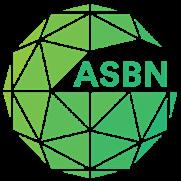
2023 was a year of great challenges and extraordinary achievements for the American Sustainable Business Council (ASBC). Our members contributed to the passage of important legislation, testified in Congress and in state legislatures, and published op-eds and other key pieces of thought leadership. We hosted a successful two-day lobbying event in June, collectively meeting with dozens of Congressional offices and the White House. On top of that, we published four major policy reports, and our research and recommendations were adopted in several state and federal bills and regulations.
While we celebrate these achievements, ASBC must also reflect on how better to serve our members and our mission. Our path forward is a process of learning and continuous improvement to ensure transparency, accountability, and effectiveness. The past year has taught us lessons that will make this a more vital and effective organization in the years to come.
We enter 2024 as a more streamlined, focused, and energized organization, and we’re ready to hit the ground running. And make no mistake, 2024 will be a critical year for people and the planet, as we anticipate national and local elections, major legislation, court decisions and regulatory changes, on top of a major backlash against responsible business and investing. There’s never been a more important time for the sustainable business community to raise a united voice for social and environmental justice.
Unfortunately, there are many other groups that claim to represent American businesses and investors and are actively lobbying to restrict voting rights; to pollute our air, water, and soil; to subsidize fossil fuels; and to exploit workers and communities.
ASBC is YOUR voice – the voice of business owners and investors who support a just and sustainable economy. Together with you – our members, partners, allies and donors – we can create an equitable, regenerative, and just economy that benefits everyone, people and planet.

This past year was one of tremendous growth for the American Sustainable Business Institute. We accelerated our educational programs and partnerships by leading webinars, conferences, and workshops for business leaders, investors and stakeholders. We also greatly expanded our national footprint, launching several new state affiliates, while partnering with stakeholder allies ranging from commercial fishermen in Alaska to small manufacturers in Appalachia.
Our commitment to social and racial equity led us to further our mission for a truly inclusive economy. Through our Restorative Investing programs, such as the Racial Justice Collaborative Fund, the Belonging Collaborative, and the Racial Equity Investing Coalition, we’re expanding economic opportunities for entrepreneurs and communities who have faced systematic barriers to capital.
Adding to the momentum, ASBI is co-leading an exciting five-year, $35 million initiative, the Growing GRASS & Climate-Smart Value-Added U.S. Commodity Markets Project. Funded by the USDA, Growing GRASS will work with a large and diverse producer and stakeholder network to increase the value and production of regeneratively grazed beef and bison in ways that benefit producers, rural economies, and the climate.
Our nation faces tremendous challenges in the coming year, and we can’t solve them by working in silos. Instead, we must strengthen our partnerships with allies, businesses, foundations, and government agencies. Together, we can achieve our vision for a truly just and sustainable economy.

Bringing our community together is at the core of ASBN’s mission to inform, connect, and mobilize business leaders. In 2023, ASBN hosted four in-person events for 140 participants, and 10 webinars reaching 1,200 participants, in addition to our regional networking events.

ASBN members enjoy an evening of networking and learning at our Philadelphia Regional Happy Hour on May 10.
ASBN’s popular “ASBN Live” webinar series included “Climate Fingerprints: How Corporate Cash is Fueling the Climate Crisis, and What Businesses Can Do About It,” featuring leaders from Climate Finance Action, Clean Creatives, Seventh Generation, and The Outdoor Policy Outfit; and “Clean Energy & Infrastructure: Impact & Opportunities,” featuring panelists from the White House Office of Clean Energy, the U.S. Department of Energy, and the BlueGreen Alliance. ASBN also hosted several lively in-person policy discussions, including “Greenwashing: A Conversation between ASBN and Allbirds” on April 13; and “The Anti-ESG Movement: Combating the Attack on Business & Impact Investing” on June 28, which included speakers from Morgan Stanley, As You Sow, Invest for Better, and Nia Impact Capital.

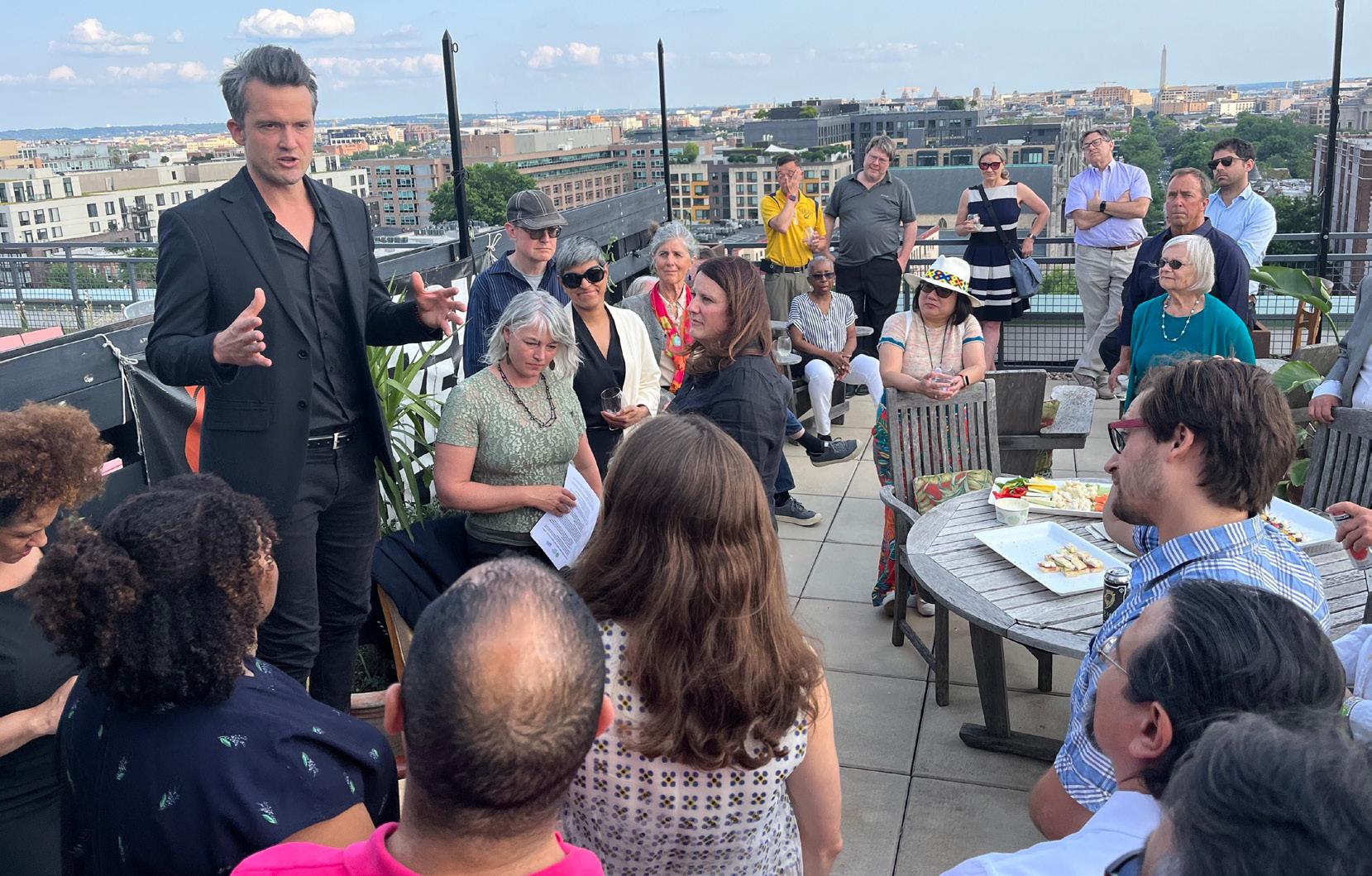
On June 13, ASBN board, staff, investors, and partners gathered for a reception on the green rooftop of member Jim Epstein, where advocates shared their experiences lobbying for ASBN policies on the Hill and at the White House.
ASBN members and partners gather in San Francisco on June 28 to discuss the attacks on ESG and socially responsible investing.
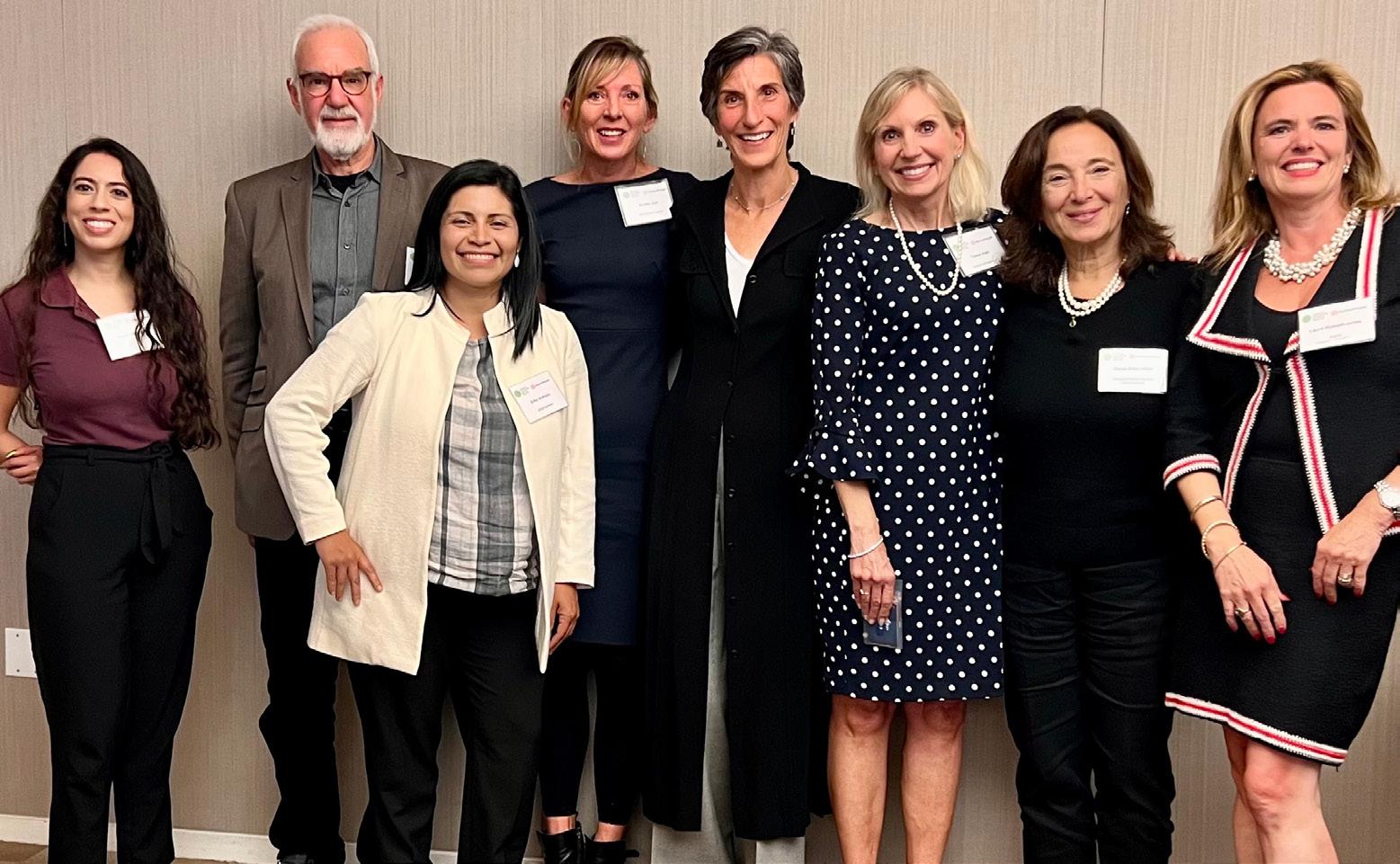

ASBN’s Policy, Advocacy, and Government Affairs team positions the sustainable business community to work in partnership with local and state government, Congress, and federal agencies. In collaboration with our leaders and allies, ASBN’s dedicated team works tirelessly to shape new policy alternatives and business practices that will pave the way towards a more sustainable, just, and prosperous economy.
Policy Priorities: In 2023, ASBN published an updated edition of our groundbreaking “Creating an Economic System that Works for All” report. This detailed document identifies current and emerging policy opportunities that would enable the transition to a just and sustainable economy. We also released “Unearthly Promises: ASBN’s Guide to Greenwashing,” which explains how environmental marketing often exploits public concern for the purpose of enhancing profits or distracting consumers from real environmental harms. This comprehensive report describes the history of greenwashing and advises companies on how to avoid it. ASBN’s Carbon Labeling Campaign, which supports carbon labeling and emissions transparency, developed a comprehensive Business Case for Carbon Labeling which was distributed to policymakers in Congress. Finally, ASBN co-produced the Business Case for a Regenerative Transition, a bold proposal for building regenerative policies into the 2023 Farm Bill.

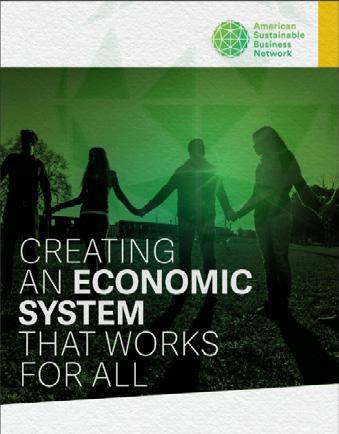
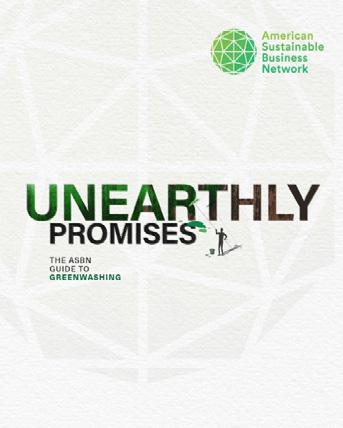


ASBN on The Hill: Dozens of ASBN members from across the nation gathered in Washington for a powerful in-person lobby day in June. ASBN staff, members, and allies met directly with 58 Congressional offices to discuss core issues, including regenerative agriculture in the Farm Bill, investing in a circular economy, the freedom to invest responsibly, and the implementation of the landmark Inflation Reduction Act.
Led by the Regenerative Agriculture & Justice Working Group, a crosssector business and investor initiative working in cooperation with farmers and other agricultural stakeholders, ASBN advocates for policies that prioritize sustainable agriculture, environmental justice, and support for underserved and BIPOC farmers.
• In February, ASBN co-organized the Food Not Feed Summit with Farm Action Campaign, culminating in a lobby day in Congress.
• In March, ASBN co-organized Farmers for Climate Action Rally for Resilience on Capitol Hill with performances by John Cougar Mellancamp and Willie Nelson.
• In partnership with Kiss The Ground’s Regenerate America campaign, ASBN produced the Business Case for a Regenerative Transition, a bold proposal for building regenerative policies into the 2023 Farm Bill.
• In June, ASBN and Regenerate America brought our Business Case directly to policymakers during a Farm Bill Fly-In, where more than 30 business leaders and farmers attended nearly 40 Congressional meetings to advocate for regenerative agriculture and justice for underserved producers and communities.
• In November, ASBN submitted a letter to Congressional leaders outlining the policy priorities developed by the RegenAg Working Group, including six specific marker bills to be passed in the Farm Bill or similar legislation.

• ASBN celebrated the implementation of Inflation Reduction Act policies that the Working Group advocated for in the past two years, including $5 billion in debt relief for at-risk producers, and financial assistance for farmers who have experienced past discrimination by the USDA.
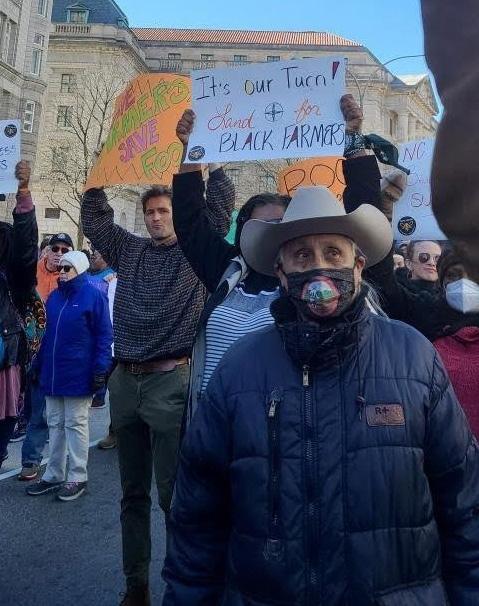

In March, ASBN members joined Farmers for Climate Action at a Rally for Resilience on Capitol Hill, which included performances by John Cougar Mellencamp and Willie Nelson.

(L-R) ASBN’s Manager of Regenerative Agriculture and Clean Water Liza LaManna, U.S. Rep. Sharice Davids (KS-3), and Molly Lawrence and Suzanne McDowell from King Arthur Baking meet on Capitol Hill to discuss regenerative agriculture in March.

Fossil fuels are the largest single contributor to climate change, threatening our air, water, and public health. ASBN works for a transition to a just and sustainable clean energy economy.
• As part of the ASBN’s June Lobby Day, ASBN staff and leaders met with White House officials to discuss the implementation of the Inflation Reduction Act (IRA), the largest federal clean energy investment in American history. As a result, ASBN will provide the administration with several “IRA Success Stories” from our network.
• ASBN’s Carbon Labeling Campaign released the comprehensive Business Case for Carbon Labeling to encourage stronger labeling policies from Congress.
• ASBN collected hundreds of sign-on letters from business leaders supporting EPA rulings on IRA implementation, including the Power Plant Rule, the Methane Rule, and a Proposed Rule on Soot.
• In December, ASBN celebrated the EPA’s new rules against methane emissions, the result of a two-year campaign by our members.
• In 2023, ASBN leaders published op-eds in strategic media markets such as Wisconsin, Pennsylvania, New Mexico, and Arizona to highlight the opportunities and challenges of IRA implementation.
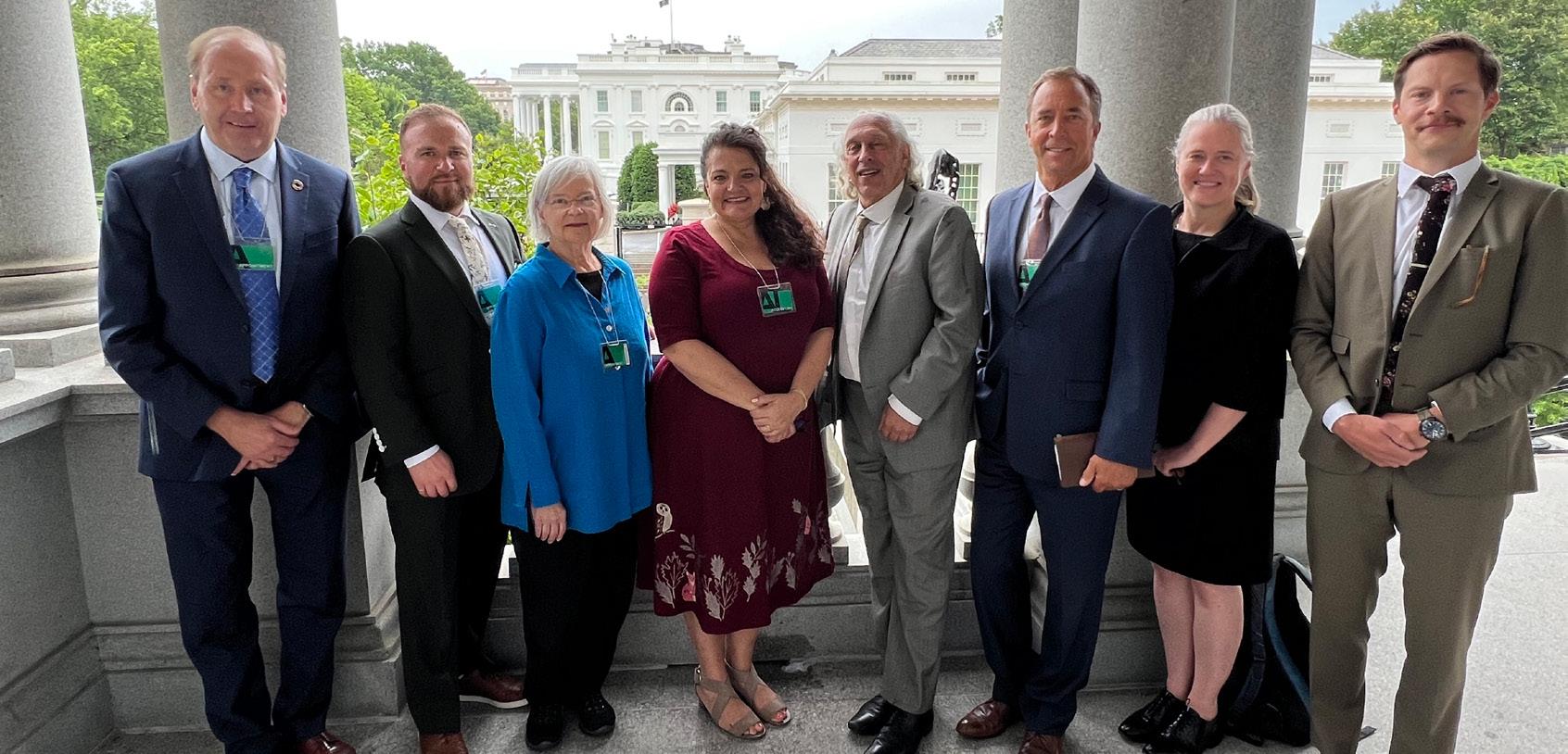
In June, ASBN staff and leaders meet with White House officials to discuss the implementation of the Inflation Reduction Act, the largest federal clean energy investment in American history.

Deteriorating water quality and increased flooding threaten businesses and communities across America. In 2023, ASBN convened a variety of business voices to advocate for reduced nutrient pollution, better water infrastructure, and policies to build flood and drought resilience.
• ASBN’s “Clean Water is Good for Business” campaign brings together leaders and investors to make the economic case for sensible water protections. To promote the campaign, ASBN distributed three quarterly “Clean Water” newsletters to readers in the Delaware River Watershed, highlighting the threats facing our water supplies, as well as success stories and publicprivate partnerships.
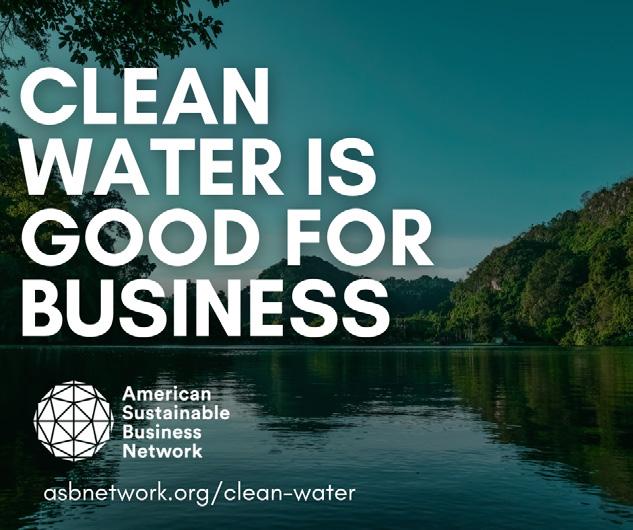
• In March, the Clean Water is Good for Business campaign joined the Coalition for the Delaware River Watershed to lobby Congressional leaders for clean water and restoration funding.
• In September, members of ASBN’s Clean Water is Good for Business steering committee co-hosted the Delaware River Watershed Forum, collaborating with more than 300 watershed stakeholders to solve issues of environmental preservation and economic development across the region.
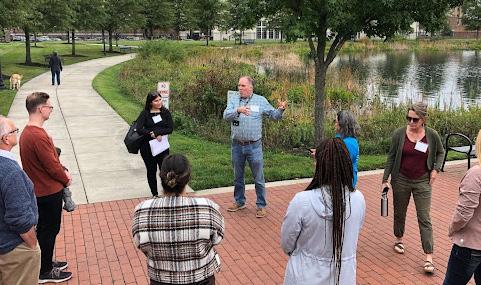
During the Delaware River Watershed Forum in September, the Wilmington Public Works department leads a tour of the Cool Spring Park Eco-trail, which provides a thriving community space as well as stormwater management.

• In October, Congressional leaders invited Colton Fagundes, ASBN’s Policy Director for Regenerative Agriculture and Clean Water, to testify at a House hearing called, “Murky Waters: Navigating a PostSackett World.” In his testimony, Colton warned that any weakening of the Clean Water Act will hurt businesses across the economy.
• In November, ASBN and the Clean Water is Good for Business Campaign led a petition drive calling on Pennsylvania lawmakers to permanently fund a statewide soil health program. In response, state legislators asked ASBN to assist them in developing legislation to meet the state’s soil and water health goals.

ASBN’s Clean Water is Good for Business campaign joins the Coalition for the Delaware River Watershed to lobby Congressional leaders for clean water and restoration funding in March.
Colton Fagundes, ASBN’s Policy Director for Regenerative Agriculture and Clean Water, testifies about the importance of the Clean Water Act in an October Democratic Roundtable
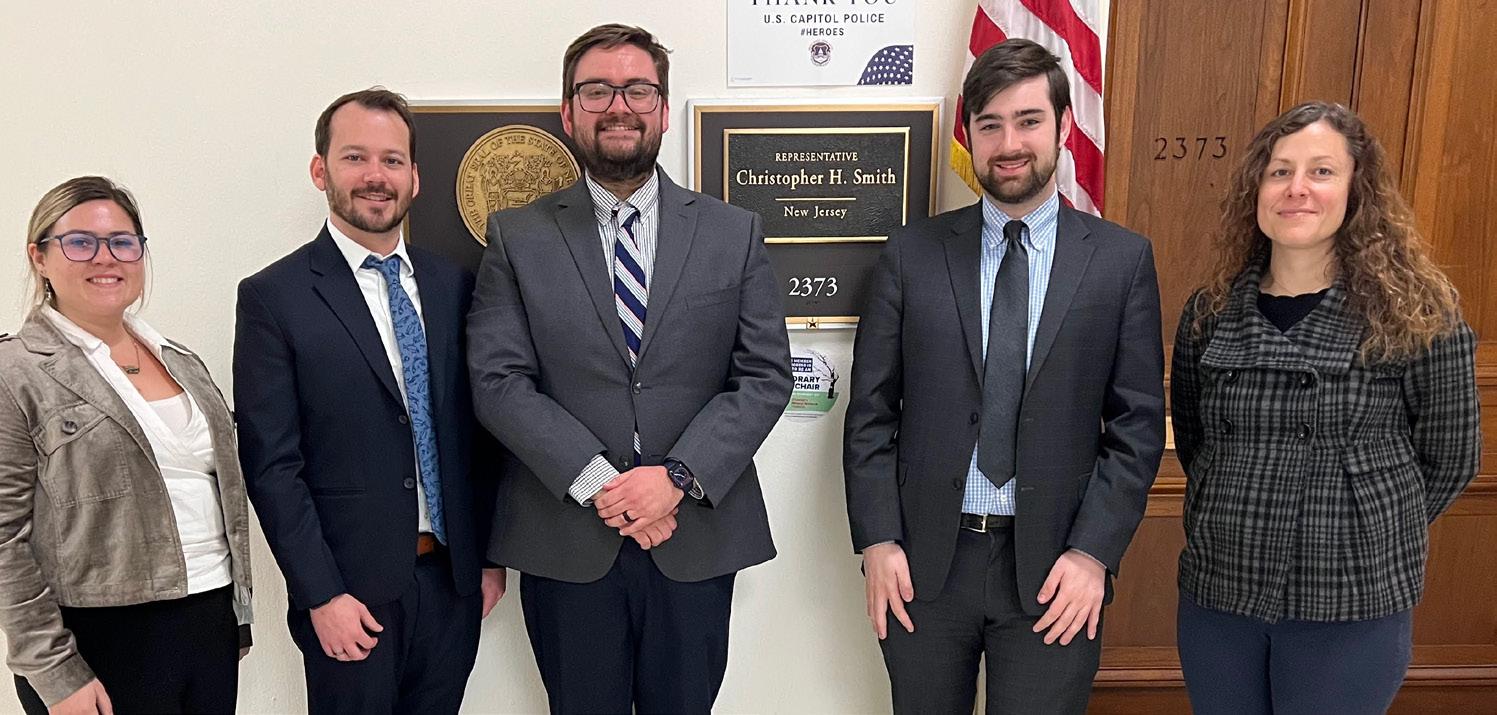

ASBN’s Safer Chemicals initiative promotes policies for more robust chemical safety in workplaces, homes, communities, and the natural environment, with a focus on the impacts of chemical manufacturing and pollution on low-wealth and BIPOC communities.
• In February, ASBN worked with Congressional leaders to introduce the Protect America’s Children from Toxic Pesticides Act, which would ban pesticides that have been scientifically proven to harm the safety of people and our environment.
• In March, ASBN organized a roundtable with 20 business leaders and the Environmental Working Group to push for procurement of PFASfree products by federal agencies. As a result, 188 businesses and advocates signed a letter to Congress urging legislation to rapidly reduce government purchasing of “forever” chemicals.
• In 2022, ASBN’s Safer Chemicals Working group submitted a definition for sustainable chemistry to the White House Office of Science and Technology Policy to address persistent harms caused by current and historical chemistry practices. In 2023, the Administration directly adopted whole pieces of our suggested language into their recommendations.
Circular systems emphasize recycling, re-use, sharing, repair, and remanufacturing to create a closed-loop system, minimizing the use of resource inputs and reducing waste, pollution, and carbon emissions.
• In April, ASBN’s Circular Economy Working group submitted a recommendation to the Federal Trade Commission, urging the agency to strengthen its “Green Guide” on the Use of Environmental Marketing Claims into a rule to prevent “greenwashing” (false marketing claims) and protect authentic sustainable businesses.

• ASBN joined the Break Free from Plastic Coalition Hill Week in June. Allies from all levels of the plastic supply chain met with dozens of Congressional offices and attended a Senate committee hearing on the Impacts of Plastic on Environmental Justice Communities, where ASBN leaders urged lawmakers to support small and medium businesses in reducing single-use products and packaging.
BCCA is an Indigenous and community-based business network advancing conservation and a just economy in key ocean and land policies, and includes Siċaŋġu Co, the Buffalo Nations Grasslands Alliance, Patagonia, and the ArcticYukon-Kuskokwim Tribal Consortium.

• BCCA led several successful policy campaigns in 2023, such as the EPA preventing construction of the Alaska Pebble Mine, rulemaking on fishery management, and the engagement of Tribal businesses to support regenerative grazing and community-led agriculture initiatives.
• BCCA and partners submitted numerous public comment letters to the Biden Administration, including for equity and environmental justice at the Departments of Commerce and Interior; and support for Indigenous and community businesses in the Inflation Reduction Act, Bipartisan Infrastructure Law, and America the Beautiful program.
• BCCA convened an Alaska Native fisheries grassroots action workshop and teach-in at this year’s North Pacific Fishery Management Council meeting in Anchorage.

BCCA Indigenous Business & Partnerships Coordinator Terrius Harris (center) attends the White House Tribal Summit in December, where ASBN was recognized for our work supporting community-based economic development in Tribal Nations.

Our economy is more robust and sustainable when everyone can bring their entrepreneurial vision to life. But people of color, as well as women and gender nonconforming people, still face systemic barriers to capital and opportunity. ASBN works to address inequities in America’s economy and society, and to hold policymakers accountable to the promise of equal opportunity.
• The Racial Justice Collaborative Fund: Aims to narrow the racial wealth gap by providing entrepreneurs of color with funding from a variety of donors and investors. In 2023, the Collaborative raised $300,000 in funding and hosted three webinars on restorative investing and trauma-informed finance, reaching 120 participants.
• The Belonging Collaborative: Established by ASBN and five other peer networks to create a global network of values-aligned investors who collaborate, inspire action, and elevate best practices for racial equity investing, the Collaborative hosted two in-person convenings, and led a team of researchers at NYU School of Business who studied the challenges facing racial equity investing, including resistance from financial advisors, difficulty in tracking impact investment data, and a lack of standardized metrics.
• Racial Equity Investing Coalition: Co-organized a gathering of 70 predominantly BIPOC fund managers, investors, and catalyzers to identify roadblocks for investing in BIPOC enterprises and communities, and develop models for creating BIPOC wealth. The coalition also raised more than $100,000 to expand its knowledge-sharing platform.
• Strengthening Pathways for Community Investing: Through our research, ASBN discovered a high level of engagement in Community Development Financial Institutions’ (CDFIs’) investment note offerings. To amplify findings, ASBN organized three webinars to connect hundreds of individuals, nonprofits, and asset managers with CDFIs.

• Catalyzing Community Well-Being and Prosperity: Utilizing Participatory Action Research to unite community leaders, investors, and academics around increasing access to capital, inclusive entrepreneurship, and alternative ownership and financing models, ASBN partnered with LEAF in Boston, Coop Cincy, the Rosebud Sioux Reservation, and Reimagine Appalachia to facilitate stakeholder dialogue with the goal of publishing six case studies on alternative ownership models.
• Transforming Ownership: This year, ASBN provided recommendations, case studies, and public comment which was included in the final bill for the bipartisan Employee Equity Investment Act. ASBN also spearheaded a coalition to pass the California Employee Ownership Act, which establishes a state-run Employee Ownership Hub to assist businesses transitioning to employee ownership models, which will significantly expand the role of worker cooperatives and ESOPs.
• Small Business: In June, ASBN leaders met with Chairman of the U.S. Senate Small Business and Entrepreneurship Committee, Ben Cardin, to advocate for small-dollar direct lending by the Small Business Administration, as well as improved access to capital in rural and underserved communities. In October, ASBN’s Director of Business for Democracy Frank Knapp testified at a U.S. House Committee on Small Business hearing in favor of regulations that protect small businesses.
ASBN Director of Business for Democracy Frank Knapp testifies in favor of regulations protecting small businesses at a U.S. House committee hearing in October.


In 2023, ASBN launched a new policy initiative focused on Responsible Business and Investing. Incorporating environmental, social, and governance (ESG) factors into operations positions businesses to strategically navigate the challenges and opportunities arising from climate risks, evolving regulatory landscapes, and stakeholder demands. The goal of this initiative is to educate stakeholders about these business benefits and encourage policymakers to protect the freedom and ability of investors to consider ESG factors. While a growing number of investors now use an ESG lens, a politically motivated anti- ESG backlash is working to restrict responsible investing and business practices. ASBN can play a key role in pushing back against anti-ESG attacks, and demand that lawmakers protect the right and ability of businesses and investors to operate and invest responsibly.
• This year, ASBN organized our first ESG Advisory Council, which includes both ASBN members and partners from corporate, nonprofit, and academic sectors.
• The council worked with ASBN’s responsible investing team to prepare its first draft of the “Business Case for ESG” which serves as a resource for policymakers and aims to shift the narrative around responsible business practices and investing.
• In November, the council provided advice and research to the minority witness in an anti-ESG Congressional hearing.
ASBN launched its Business for Democracy (BFD) campaign with the belief that a strong democracy is essential for a vibrant entrepreneurial economy. In 2023, BFD celebrated several victories:
• In Ohio, a BFD-led coalition successfully defeated a constitutional amendment that would have required a supermajority
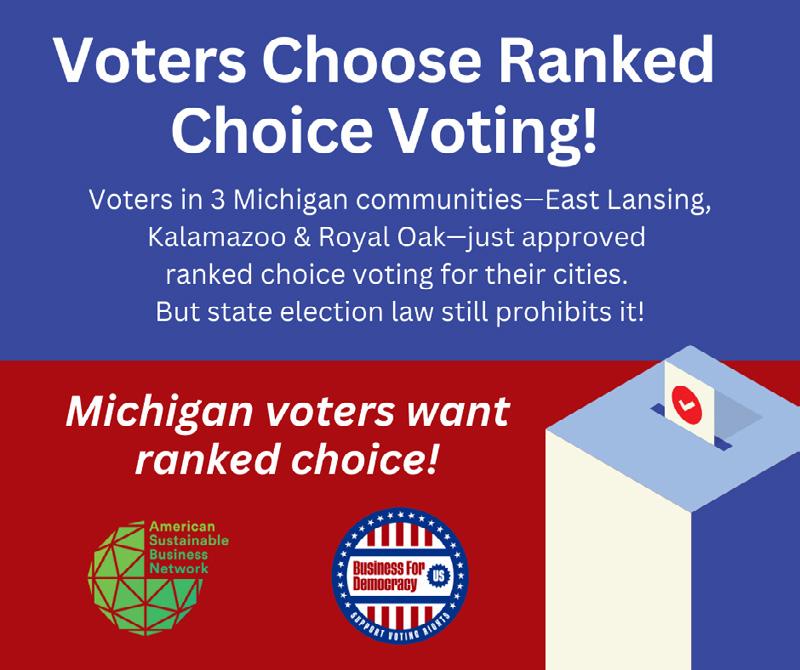

(60%) to approve ballot initiatives; this proposal was supported by the U.S. Chamber of Commerce, National Federation of Independent Businesses and other large trade groups. BFD created a “business case” against the proposal, held a series of educational webinars, along with four press events across the state highlighting opposition by local small business owners.
• In a campaign to make local and state elections more democratic, BFD partnered with Rank the Vote in Ohio, North Carolina, and South Carolina to hold several presentations on ranked choice voting with local chambers of commerce and state legislators.
• In Michigan, a BFD-led coalition passed ranked-choice voting proposals in three municipal elections, increasing pressure on the state legislature to allow ranked choice.
Since 1987, Investors Circle (IC) has invested nearly $300 million into more than 350 early-stage businesses working to solve major social and environmental problems. In addition, IC members collaborate with industry experts and thought leaders during monthly meetings and ASBN Live events, and take action through working groups and policy action committees. In 2023, IC celebrated several accomplishments:
• Developed and launched the Hurdle Fund, a $250,000 grant to provide BIPOC businesses with funds to help scale and prepare them for equity investments.
• Partnered with The Economy League to create PAGE Capital, which targets investments to companies participating in the Philadelphia Anchors for Growth & Equity (PAGE) Program, to create jobs and generational wealth in underserved communities.
• IC Philadelphia members created a “Pro Disinfect Fund” that invested $500,000 to help grown Black-owned cleaning businesses.

ASBN affiliate the American Sustainable Business Institute was chosen by the USDA to co-lead an exciting five-year initiative, the Growing GRASS & Climate-Smart Value-Added U.S. Commodity Markets Project (Growing GRASS). The program is co-led by Other Half Processing, along with an intersectional team of business, agricultural, climate, community, and industry leaders. Together, the Growing GRASS team will work with a large and diverse producer and regenerative byproduct value-chain stakeholder network to increase the value and production of regeneratively grazed beef and bison in ways that benefit U.S. farmers, ranchers, market partners, rural economies, and the climate. There is a strong focus on engaging underserved ranchers and communities.

This work ties directly to the many years of work by ASBI to advance regenerative agriculture and justice, our efforts to build a more inclusive economy and our Public Private Partnership with the Department of Interior to support Tribally led economic development.
Our roles in the project will include:
• Help guide a holistic inclusive process linking market and policy strategies.
• Supporting companies interested in participating in the supply chain opportunities.
• Build and maintain an alliance of stakeholders and supporters.
• Producer recruitment and building partnerships with farmers and ranchers.
• Grow awareness, engagement, and scale of Growing GRASS, especially in underserved communities.
• Identify public policy opportunities in the Farm Bill and beyond to ensure long term viability of the program.
• Outreach and communications with tribal leaders and communities across the country.

Our rapidly growing network of state affiliates advance ASBN’s mission of protecting people and the planet at the local, state, and regional levels. Here are highlights from some of our state organizations.
Connecticut: The Connecticut Sustainable Business Council (CTSBC) created Connecticut Energy Future (CEF), a joint project with The Nature Conservancy and Connecticut Green Bank. CTSBC also led a group of 40 cross-sector business leaders to develop Clean Energy Policy Principles, with a goal of shaping the public policy landscape as the state ramps up its commitment to clean energy.
Massachusetts: The Sustainable Business Network of Massachusetts (SBNM) supported local businesses through the Sustainable Business of the Year celebration, and “Choose Indie Local” campaign. SBNM won major grants for technical assistance for Black-owned businesses in Cambridge-Somerville, and from the Mass Clean Energy Center to connect solar companies with BIPOC and low-income workers. SBNM is transforming local food
systems with events like the Boston Local Food Fest, with 50,000 participants; and the New England Local Food Trade Show, which connected 80 local food businesses with 100+ buyers.
New Jersey: The New Jersey Sustainable Business Council (NJSBC) amplifies the business voice in support of clean energy, watershed protection, and investments in sustainability. In November, the state adopted the Advanced Clean Cars II standards, requiring manufacturers to increase sales of zero-emission vehicles. NJSBC was a leader in this effort and was quoted in the governor’s press release. In addition, NJSBC testified at Dept. of Environmental Protection hearings, sent business signon letters to policy makers, and published op-eds by NJSBC members and the council’s BIPOC business advisory committee.

New Mexico: Sustainable Equitable Economic Democracy
New Mexico (SEED NM) is a new ASBN affiliate, working to develop models of sustainable, equitable economic development for all New Mexicans. In 2023, SEED NM engaged real estate professionals, credit unions, and business owners to support Albuquerque’s successful “Housing Forward” initiative, which allows accessory dwelling units and conversions of commercial buildings to housing.
New York: The New York Sustainable Business Council (NYSBC) led a campaign to ban PFAS in food packaging, which is being followed by a dozen states. After the ban went into effect, NYSBC hosted a webinar with food packaging manufacturer Emerald Brand to show food service companies how to comply. NYSBC celebrated other legislative victories, including the
Clean Water, Clean Air & Green Jobs Act; the Moratorium on Crypto Mining; PFAS in Apparel Bill; the Cumulative Impacts and Carpet EPR Bills, and the Birds and Bees Protection Act, a firstin-the-nation bill that limits the use of neurotoxic neonicotinoid pesticides.
North Carolina: The North Carolina Business Council (NCBC) organized hundreds of business leaders through sign-on letters, public comments, and roundtables on voting rights, redistricting reform, and environmental justice. NCBC co-chaired the North Carolina Small Business Task Force, a collaboration of 20 business organizations that convinced the state to invest $5 million to support small companies. NCBC also led a roundtable with U.S. Sen. Thom Tillis to discuss how federal legislation can be leveraged by small businesses.


Ohio: The Sustainable Business Council (OSBC) partnered with ASBN, Ohio University and others to provide resources for the reindustrialization of the former Portsmouth Gaseous Diffusion Plant. OSBC co-hosted a series of webinars supporting the redevelopment of clean energy infrastructure in the region, including events on hydrogen and media engagement. OSBC joined Business for Democracy to oppose Issue 1, an anti-democracy ballot initiative, holding press events in Cleveland, Akron, Columbus and Cincinnati, and demonstrating opposition by small business owners. Ohioans overwhelmingly rejected the proposal.
Pennsylvania: Formed in 2023, the Pennsylvania Sustainable Business Network (PASBN) is focused on the Pittsburgh region and the manufacturing
In February, the Ohio Sustainable Business Council hosted a webinar on clean energy infrastructure that included speakers from ASBN, Ohio University, the White House Office of Clean Energy Innovation & Implementation, and the U.S. Dept. of Energy.
sector. PASBN launched a series of in-person events across the state to support sustainable manufacturing, and won two grants to grow the network’s capacity as well as a regional Appalachian Sustainable Business Network.
South Carolina: The South Carolina Small Business Chamber of Commerce (SCSBCC) continues to lead in the Cover SC Medicaid Expansion Coalition. SCSBCC successfully blocked electricity rate hikes on small businesses by intervening in the SC Public Service Commission rate hearings. The chamber also partnered with Better Ballot SC to conduct monthly polls of presidential primary candidates using ranked choice voting, and joined an amicus brief to the U.S. Supreme Court opposing an effort to overturn the Chevron ruling.

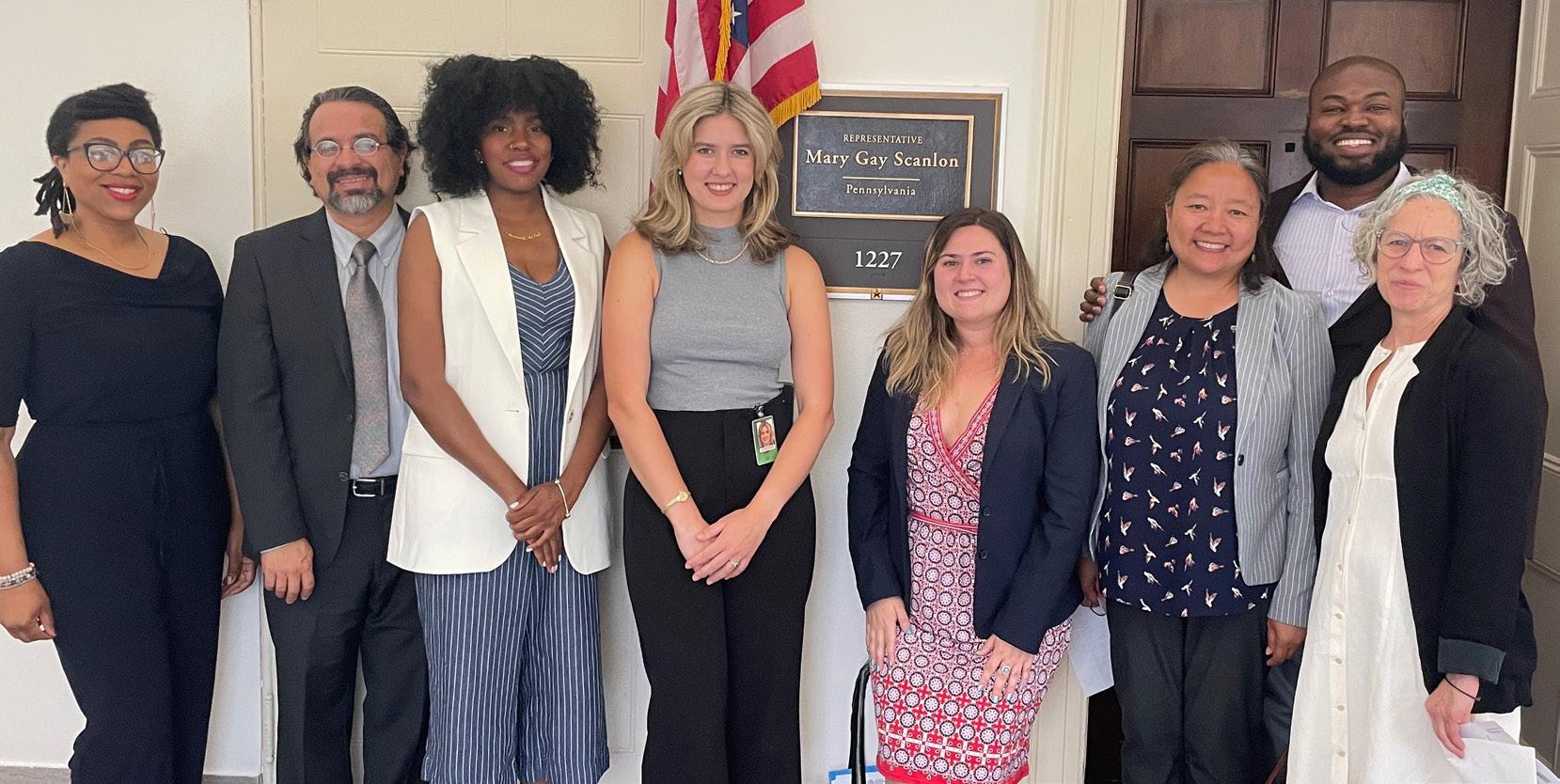
Vermont: Vermont Businesses for Social Responsibility (VBSR) held a successful Businesses for Climate Action lobby day at the statehouse. As a result, the state passed Act 76, which will invest $125 million annually in Vermont’s child care and early childhood education workforce; the Affordable Heat Act, which will ease the transition to clean energy heating; and Paid Family & Medical Leave Insurance, which provides workers up to 12 weeks of paid leave.
Wisconsin: In March, the Wisconsin Environmental Initiative (WEI), ASBN and WisBusiness.
com hosted a luncheon on the Inflation Reduction Act and the transition to clean energy. In August, WEI Executive Director John Imes partnered with ASBN to publish an op-ed on what the IRA means for Wisconsin; in October, he penned a second oped called, “Political obstruction is climate destruction” which was published in five statewide outlets. The state’s Housing & Economic Development Authority approved WEI’s Green Built Gold Standard as eligible for additional sustainability scoring points. In 2023, WEI certified over 2,000 Green Built Homes and multifamily affordable housing units.

2023 was a year of tremendous challenges for our nation and our world. Last year was the hottest on record, as the U.S. experienced 128 separate climate disasters that cost at least $1 billion each in damages, including the deadly wildfires in Hawaii. We also faced existential threats to our democracy, and continued attacks on initiatives to promote racial and social justice. To make matters worse, major business groups are actively lobbying against the responsible and sustainable policies we need to protect our future.
The good news is that ASBN continues to be a leading business voice for a sustainable and just economy and society. Our collective business voice and power matters. With the help of our members and supporters, we make the case that there are great business opportunities and good jobs in fighting climate change. That common sense regulations are good for business in creating a level playing field. That treating our employees, customers, and communities with respect is good for business.
The challenges we face in 2024 are even greater. But with the help of our members, partners, staff, and supporters, ASBN can be a greater force for good. As we enter our next chapter, we remain committed to our mission of promoting sustainability and social responsibility in all aspects of business, fueling a more sustainable and just world.
Can we count on your support to continue to work together towards a brighter future for all?
Get in touch at hello@asbnetwork.org to join the movement.


